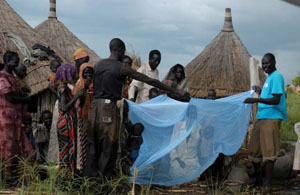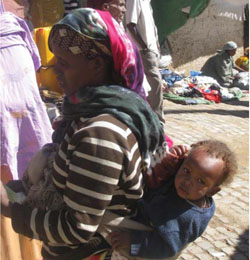14.3.1 Observational and experimental studies
In an observational study you just observe and analyse your study subjects or situations in their natural condition, but the researcher does not intervene in any way. However, the observations should not just be a haphazard collection of facts; observational studies should apply the same rigour as experimental studies by recording the observations in a systematic way that can lead to meaningful interpretations. You are more likely to be involved in observational studies than in experimental studies.
An experimental study is a type of research design in which some of the conditions are under the direct control of the researcher. He or she intentionally alters one or more factors (e.g. the behaviour of participants, or their circumstances and situations), and then measures the outcomes to analyse the effects of the alteration. For example, you could implement a health education campaign on the benefits of immunization (this is the intervention), and then measure any improvement in immunization coverage rates (by analysing the outcomes of your intervention).
A study in your village is set up to see whether people are using their insecticide treated bed nets (ITNs) correctly (Figure 14.3). You also want to know whether the number of malaria cases is influenced by incorrect use of ITNs. Is this an experimental study or an observational study?
This is an observational study, because you are observing how people use ITNs without any intervention from you, and you are counting the number of malaria cases associated with incorrect use of ITNs.

Next, you teach people how to use ITNs correctly and you distribute new nets to households where the ITNs were damaged. Then you measure the outcomes in terms of any reduction in malaria cases. Is this an experimental study or an observational study?
It is an experimental study. You intervened in the situation by giving education about ITNs and distributing new nets; then you measured the outcome in terms of any reduction in malaria cases.
One thing we have to remind you here is that it would not be ethical to introduce ITNs to some households in your community and intentionally leave other households without nets, in order to conduct an experimental study on the effect of ITNs on preventing malaria. The knowledge that ITNs protect people from the mosquitoes that transmit malaria is already well established by research. Therefore, there is no need for you to duplicate this research and deny protection to some families by leaving them out of the ITN distribution programme. This example reminds you that your actions in designing a research study must observe strict ethical guidelines (refer back to Study Sessions 7 and 8).
Another study in your village is set up to measure how much malnutrition or stunting there is in the children aged six months to three years (Figure 14.4). Is this an observational study or an experimental study?
This is an observational study, because you are describing malnutrition or stunting without any intervention, such as introducing nutritional supplements.

14.3 Types of study design
